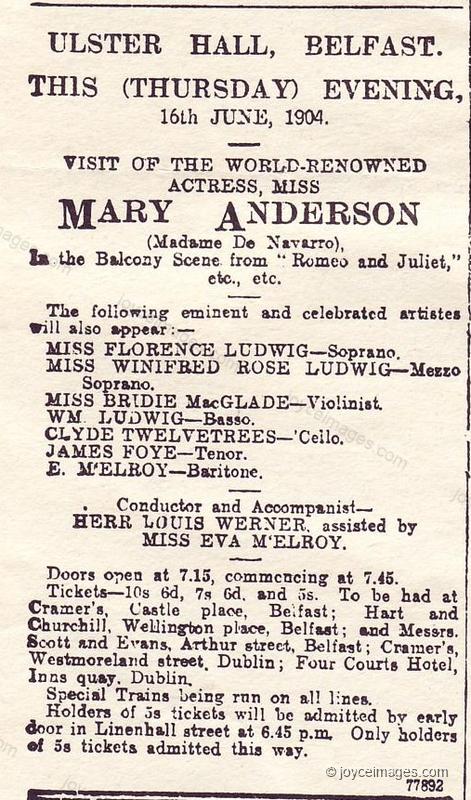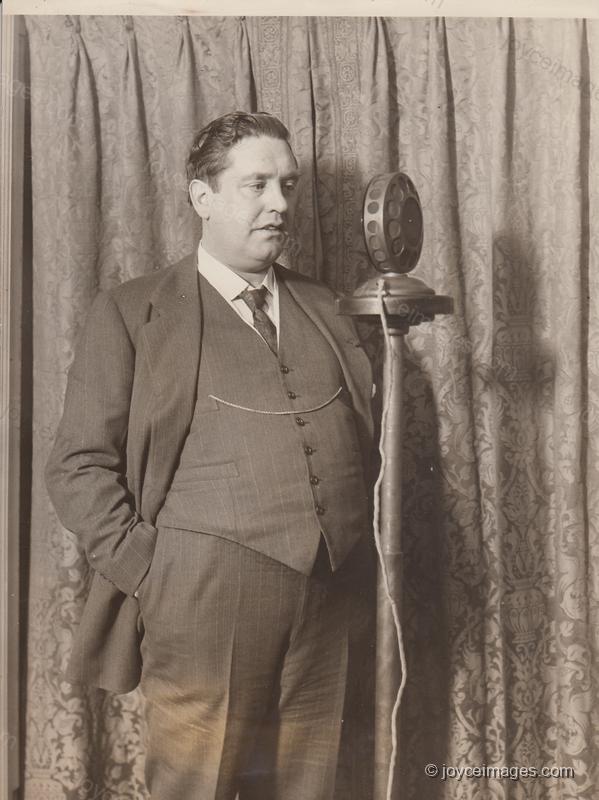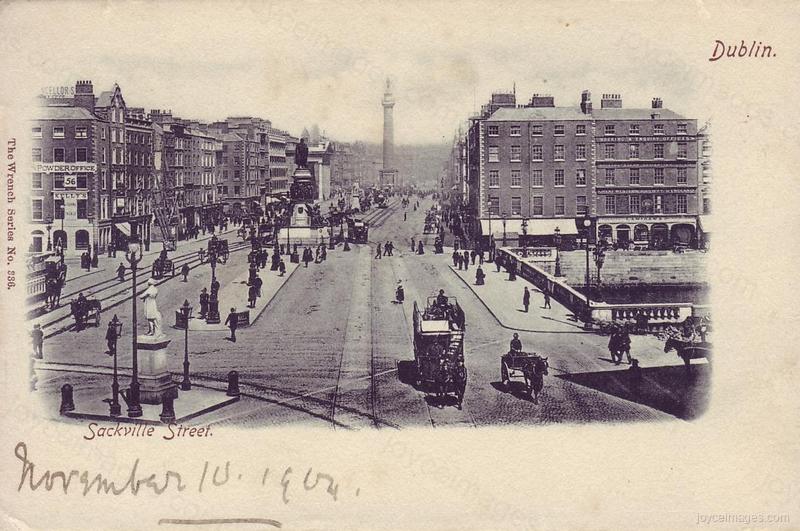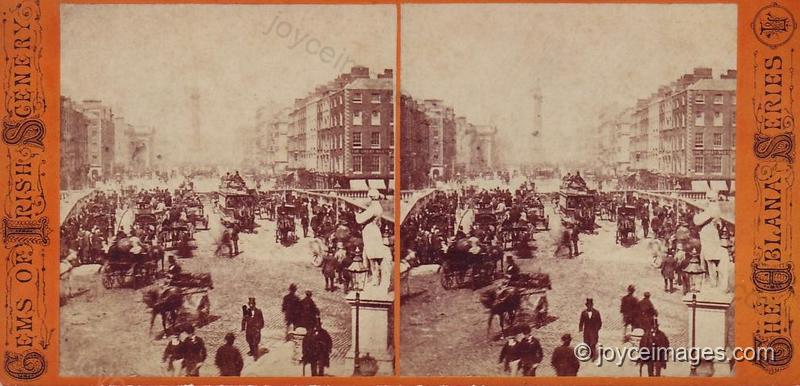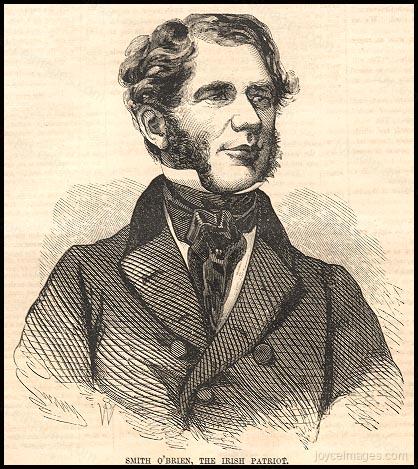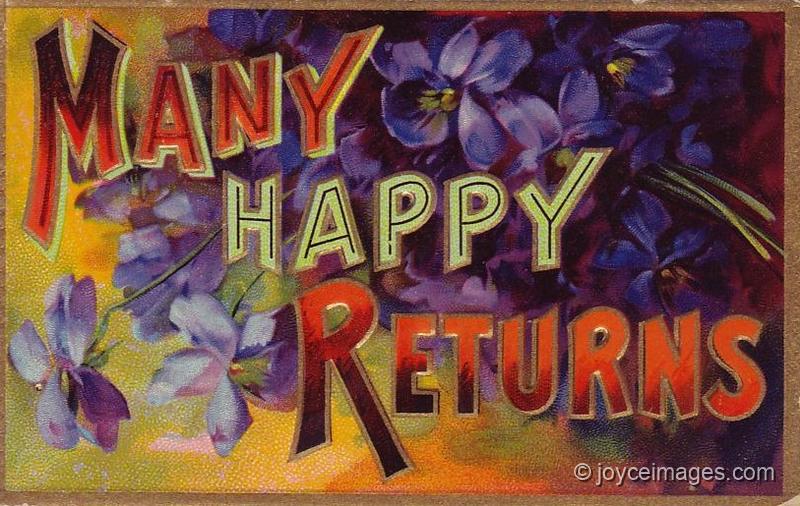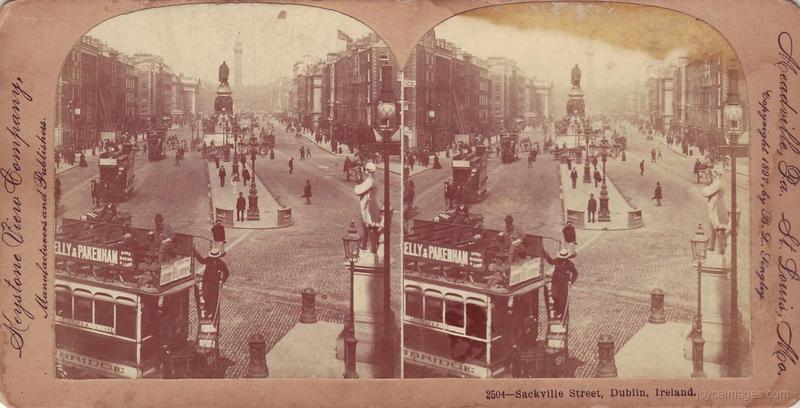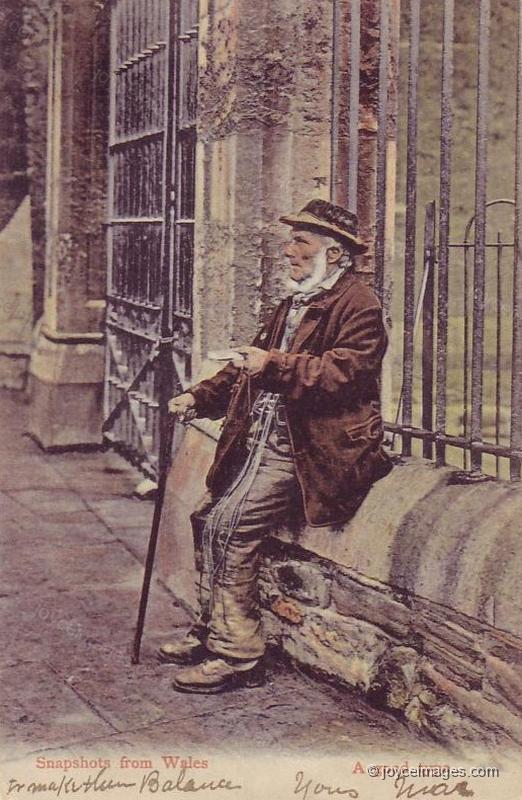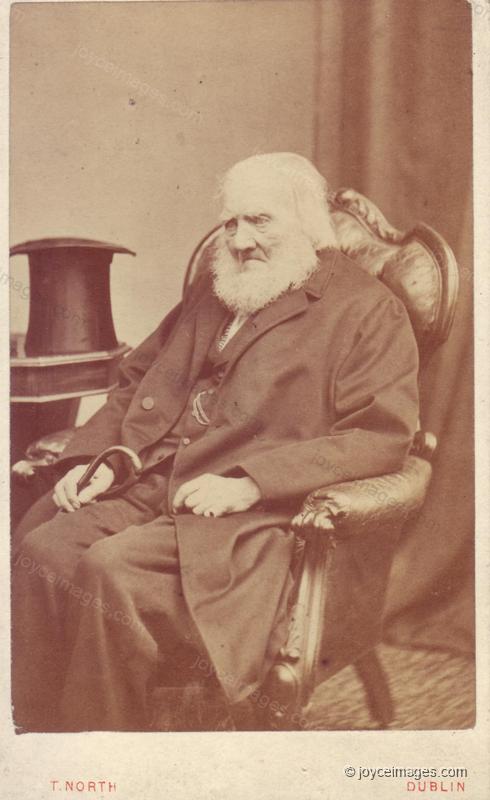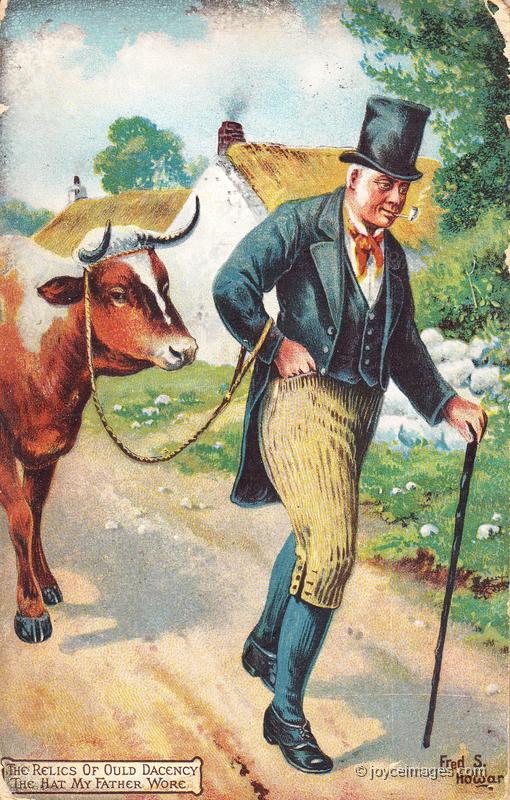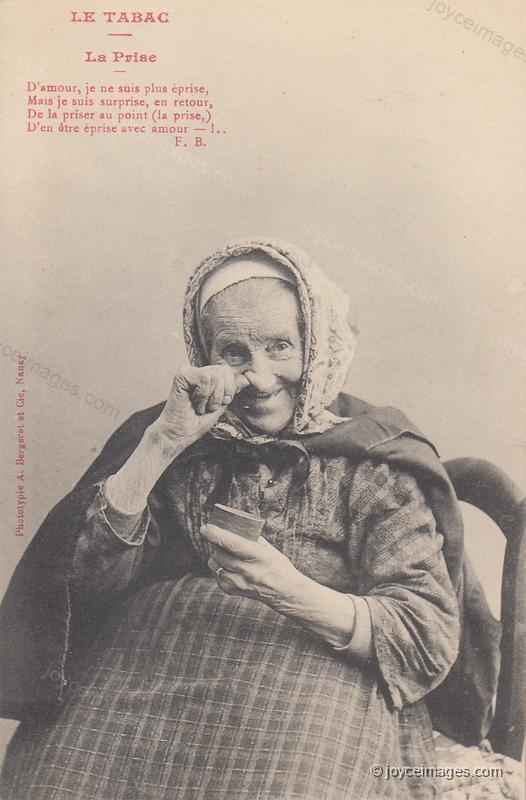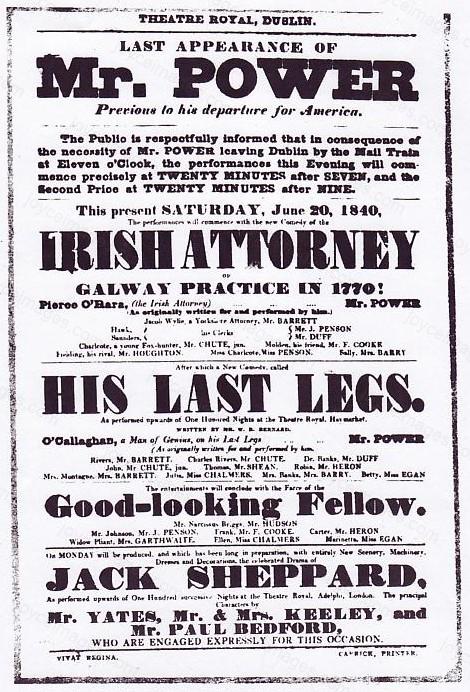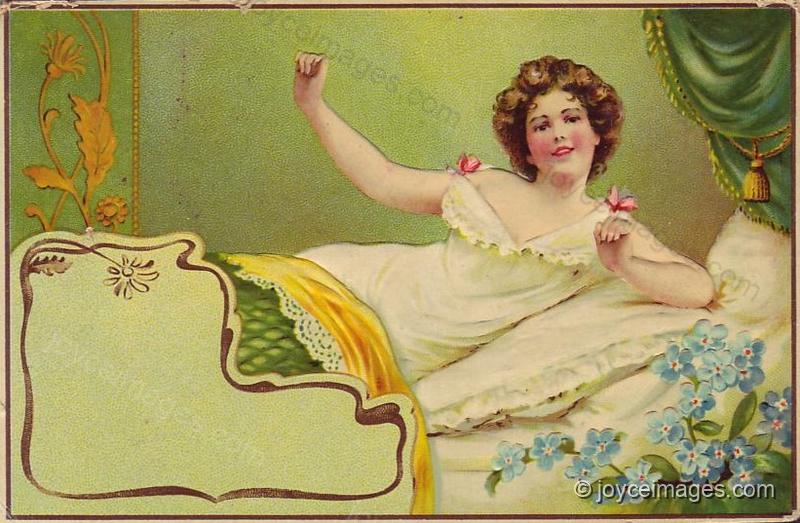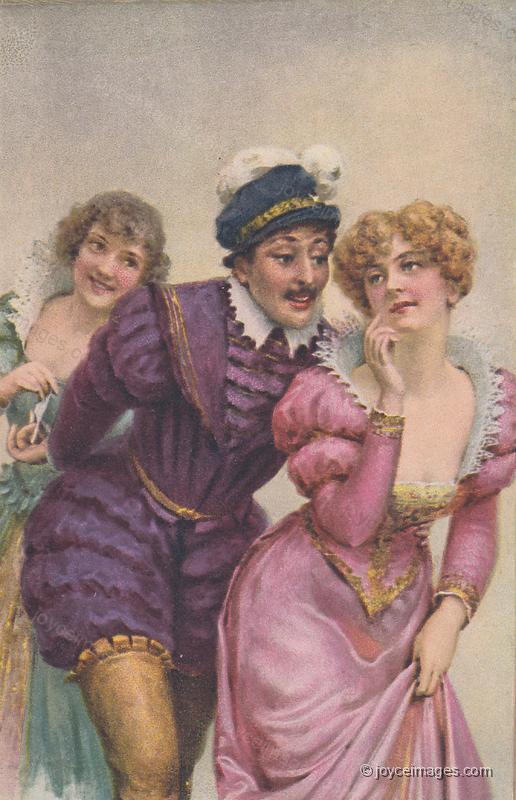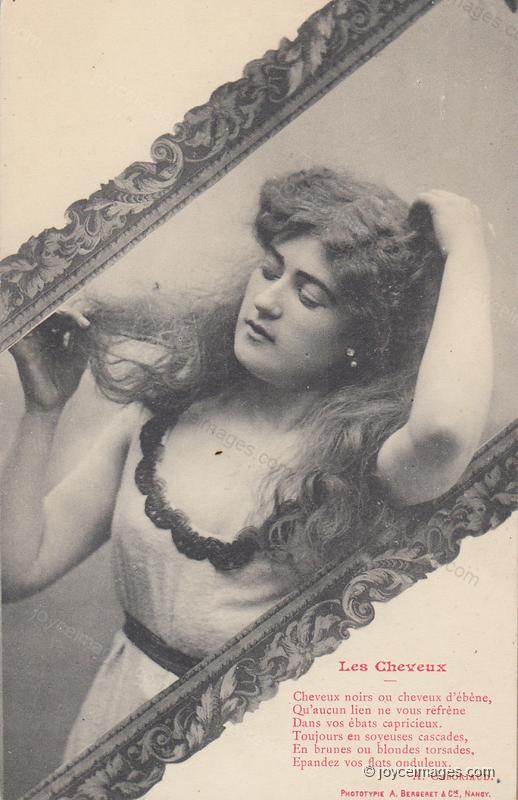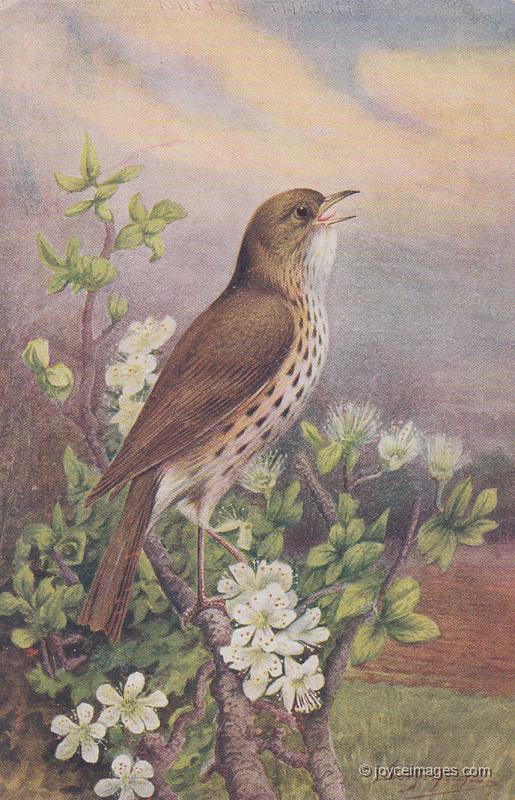"- Louis Werner is touring her, Mr Bloom said. O yes, we'll have all topnobbers. J.C. Doyle" (U6.221)
"and John MacCormack I hope and. The best, in fact.
- And madame, Mr Power said smiling. Last but not least.
Mr Bloom unclasped his hands in a gesture of soft politeness and clasped them." (6.222)
John Francis McCormack (1884 - 1945) was an Irish tenor celebrated for his performances of the operatic and popular song repertoires, and renowned for his diction and breath control. In March 1904, McCormack met Joyce, who at the time had singing ambitions himself, and they spent several evenings practicing together. McCormack persuaded Joyce to enter the Feis Ceoil that year, where Joyce, not yet famous as a writer, was awarded the Bronze Medal (3rd prize). MacCormack is seen here during rehearsal for a performance in New York, 1922.
- And madame, Mr Power said smiling. Last but not least.
Mr Bloom unclasped his hands in a gesture of soft politeness and clasped them." (6.222)
John Francis McCormack (1884 - 1945) was an Irish tenor celebrated for his performances of the operatic and popular song repertoires, and renowned for his diction and breath control. In March 1904, McCormack met Joyce, who at the time had singing ambitions himself, and they spent several evenings practicing together. McCormack persuaded Joyce to enter the Feis Ceoil that year, where Joyce, not yet famous as a writer, was awarded the Bronze Medal (3rd prize). MacCormack is seen here during rehearsal for a performance in New York, 1922.
"Smith O'Brien. Someone has laid a bunch of flowers there. Woman." (U6.226)
William Smith O'Brien (1803 - 1864) was a leader of the doomed rebellion of 1848.
William Smith O'Brien (1803 - 1864) was a leader of the doomed rebellion of 1848.
The statue of Smith O'Brien on Sackville street (where it meets D'Olier street) was unveiled 1870, the first monument in Dublin to commemorate a revolutionary Irish nationalist. It is seen here with Carlisle bridge (O'Connell's monument is not up yet).
William Smith O'Brien (1803 - 1864) was born in Co. Clare, and was educated at Harrow and at Cambridge. He became M.P. for Ennis (1828), then Limerick (1835). Originally a conservative Protestant 'Country Gentleman', his views gradually shifted to the left. He worked for Catholic Emancipation, Irish poor relief, and state support of the Irish Catholic clergy. He joined the Repeal Association (1843), became a leading member of the Young Irelanders, and a founding member of the Irish Confederation (1847). He was active in relief from the famine. In 1848, he urged the formation of a National Guard and an armed rising. The revolt was abortive, the only engagement being a skirmish with a police detachment in Co. Tipperary. O'Brien was arrested and condemned to death. The sentence was commuted to transportation to Tasmania. He later was pardoned, returned to Europe and Ireland, no longer active in politics.
"Must be his deathday. For many happy returns." (U6.227)
The inscription on O'Brien's statue reads:
'Born 17th October 1803
Sentenced to death for high treason on the 9th October 1848
Died 16th June 1864'
so Bloom's speculation is valid.
The inscription on O'Brien's statue reads:
'Born 17th October 1803
Sentenced to death for high treason on the 9th October 1848
Died 16th June 1864'
so Bloom's speculation is valid.
"The carriage wheeling by Farrell's statue united noiselessly their unresisting knees." (U6.227)
The statue of Smith O'Bien was the work of artist Thomas Farrell, who also did Sir John Gray's statue further up the street. It was of Sicilian white marble, ten feet high, and paid for by public subscription. O'Brien is shown wearing an ordinary frock coat, with his arms folded, and his weight borne on one leg.
The statue of Smith O'Bien was the work of artist Thomas Farrell, who also did Sir John Gray's statue further up the street. It was of Sicilian white marble, ten feet high, and paid for by public subscription. O'Brien is shown wearing an ordinary frock coat, with his arms folded, and his weight borne on one leg.
"Oot: a dullgarbed old man from the curbstone tendered his wares, his mouth opening: oot.
- Four bootlaces for a penny." (U6.229)
- Four bootlaces for a penny." (U6.229)
"Wonder why he was struck off the rolls. Had his office in Hume street. Same house as Molly's namesake, Tweedy, crown solicitor for Waterford." (U6.232)
[Note: this is not Martin Cunningham]
[Note: this is not Martin Cunningham]
"Has that silk hat ever since. Relics of old decency. Mourning too. Terrible comedown, poor wretch!" (U6.234)
